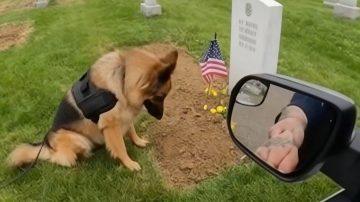The passage of time is a universal truth, leaving its mark on all living things. In the captivating eyes of a senior dog, like the one gazing inquisitively from the attached image, we see a story etched in silver fur and gentle expressions. This beautiful creature, with its distinguished grey muzzle and soulful eyes, embodies the quiet dignity of age. It’s a look that speaks of countless memories, shared joys, comforting presences, and perhaps a few playful misdemeanors. Observing such a dog isn’t just about noting the physical changes; it’s an invitation to recognize the profound shift in their needs and behaviors. As our canine companions transition into their golden years, they require a nuanced approach to care, one that acknowledges their accumulated wisdom and ensures their comfort and happiness. This article delves into the essential aspects of caring for senior dogs, offering insights into their evolving health, nutritional, and emotional requirements, all while celebrating the unique bond they continue to share with us.

Defining “Senior” in Canines: More Than Just a Number
While the term “senior” might conjure images of extreme old age, its definition in the canine world is more fluid, often depending on breed and size. Generally, smaller breeds tend to live longer and enter their senior years later, around 9-11 years of age. Medium-sized dogs typically become seniors around 7-9 years, and large to giant breeds can be considered senior as early as 5-7 years old. It’s crucial for owners to understand this distinction, as it dictates when proactive senior care should begin. The changes aren’t always immediately obvious, but subtle shifts in energy levels, sleeping patterns, and even a slight greying around the muzzle are early indicators that your dog is entering a new life stage. Recognizing these signs allows for timely adjustments in their care routine, preparing both you and your beloved pet for the journey ahead.

Navigating Health Challenges: Proactive Veterinary Care
One of the most critical aspects of caring for a senior dog is proactive veterinary care. Just as humans require more frequent check-ups as they age, so too do our canine companions. Biannual or even quarterly veterinary visits are highly recommended for senior dogs. These visits allow veterinarians to monitor for age-related conditions such as arthritis, dental disease, heart problems, kidney disease, cognitive dysfunction, and various cancers, which become more prevalent in older animals. Early detection is key to managing these conditions effectively, often leading to better outcomes and improved quality of life. Diagnostic tests, including blood work, urinalysis, and sometimes imaging, can provide valuable insights into your dog’s internal health, identifying issues before they become symptomatic. Discussing preventative measures, such as joint supplements or dietary changes, with your vet is also an essential part of maintaining their well-being.

Optimizing Nutrition for Aging Bodies
Diet plays a pivotal role in the health and longevity of senior dogs. As their metabolism slows and activity levels decrease, their caloric needs often diminish. Feeding a high-quality senior-specific dog food is generally recommended, as these formulations are designed to be lower in calories to prevent weight gain, while still providing essential nutrients. They often include ingredients that support joint health, such as glucosamine and chondroitin, and antioxidants to combat cellular aging. It’s also important to consider digestibility; some senior dogs may benefit from diets that are easier on their digestive systems. Consulting with your veterinarian about the best nutritional plan for your senior dog is crucial, especially if they have underlying health conditions that require specific dietary management, such as kidney or heart disease. Maintaining an ideal body weight is paramount, as obesity can exacerbate conditions like arthritis and heart problems, significantly impacting their quality of life.







